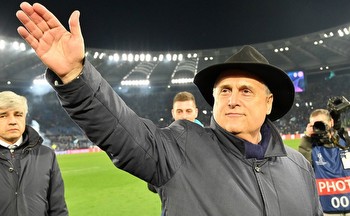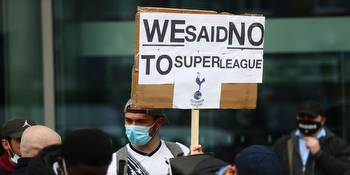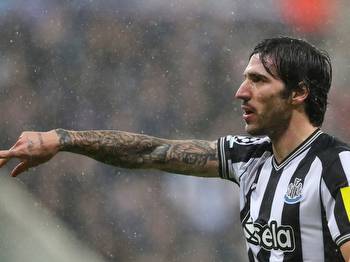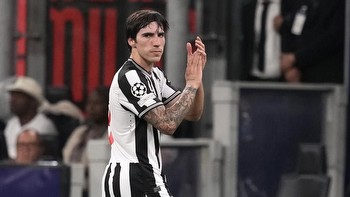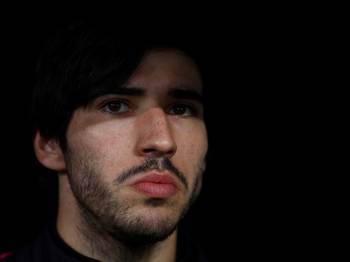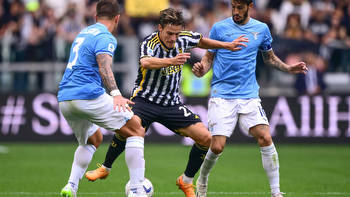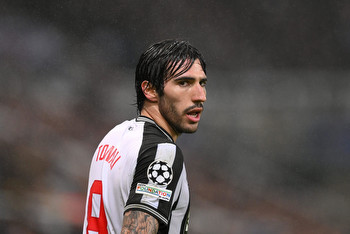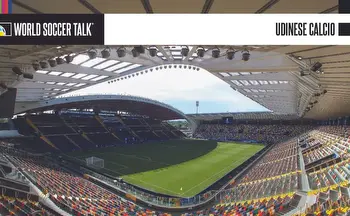Could Serie A and other elite leagues trim their top divisions to 18 clubs?
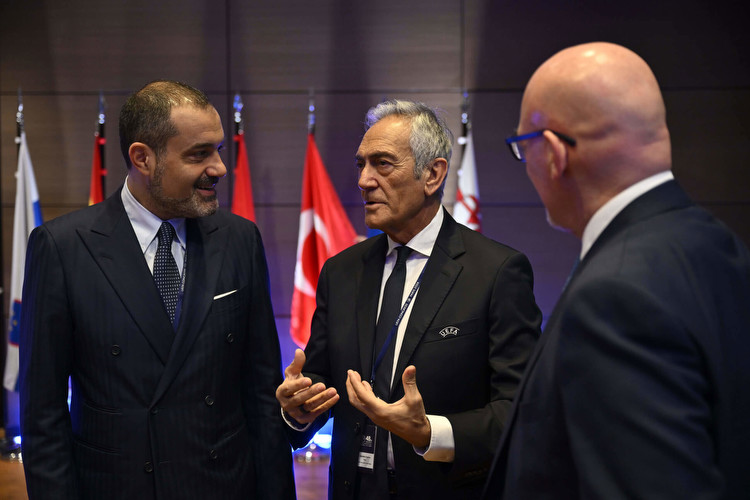
Next season’s reformatted and expanded Champions League foresees a 51 per cent increase in games. The Swiss system, for whom we have a 19th-century Zurich chess club to thank, turns the group stage into a league stage which includes a couple of matchdays in January. Then, a fortnight after the final in Munich takes place, the new 32-team Club World Cup begins in the United States.
Piling more games on an already congested football calendar has inevitably attracted criticism from the players’ union, FIFPRO. It has also prompted debate about the sustainability of 20-team domestic leagues.
Aleksander Ceferin, the UEFA president, believes leagues “should have 18 clubs, but the presidents do not agree. They should understand that two domestic cups are too many”.
The Bundesliga does not need to change. It has followed an 18-team format since 1992 and the DFB Pokal is the only active domestic cup competition. How many times has Germany’s extended winter break been used to explain the nation’s success at international tournaments when compared with England and the tiredness exacerbated by playing Premier League, Carabao Cup and FA Cup football through Christmas and the New Year? France got rid of the Coupe de la Ligue — its Carabao Cup equivalent — in 2020 and downsized to 18 teams this season.
Serie A also held a vote this month on whether it should follow suit and oversee a reduction. The outcome was a resounding 16-4 against. Turkeys tend not to vote for Christmas… unless they’re French. Metz were the only club not to support the motion to reduce Ligue 1 when a ballot was held in 2021. But, in the end, the contrariness of Serie A’s majority may prove futile.
Next month, Gabriele Gravina, the president of the Italian Football Federation (FIGC) and a member of the UEFA Executive Committee (EXCO) has organised an extraordinary assembly. Gravina wants to rationalise the Italian football pyramid. There are 104 professional teams, 60 in the regionally split third division alone. Too many.
Here’s his thinking on why a reduction would make the pyramid more financially sustainable: smaller leagues theoretically equate to lower cost bases. Fewer games mean less travel, smaller squads and, by the same token, smaller wage bills. Fewer clubs mean a bigger slice of the TV torta (pie). Fewer relegation spots bring less jeopardy but more security. More stability encourages sustainable investment in infrastructure and teams. Quality over quantity.
Make no mistake, this is a radical proposal. But every proposal Gravina makes encounters built-in resistance.
This is why he has controversially called a vote to change the statute regulating Italian football. At the moment, the leagues, players, coaches and match officials have veto rights. Gravina wants to get rid of them to push through reform and shake Italian football out of its immobilismo once and for all.
This has set him at odds with Serie A. Italy’s top flight has less autonomy from its FA than the Premier League does in England. The weight of its voting rights (12 per cent) is also less than other stakeholders such as non-league (34 per cent), the players’ association (20 per cent) and third division teams or Lega Pro (17 per cent). But the big clubs, at least on this point, are behind Gravina. Executives from Juventus, Milan, Inter and Roma met him 48 hours before the vote on whether or not Serie A should be trimmed back to 18 teams for the first time in two decades.
“Clubs like ours that play in international competitions and have lots of players called up for international duty are complaining about too many games,” Milan president Paolo Scaroni said. “All this leads to an unsustainable workload on our players. It’s the cause of many injuries.”
Too many casualties compromise the quality of football a team and a league can offer. Fans want to see teams and players at their best — not the rotated, the absent, the under-par, the exhausted. The leak of this meeting did not go down well with the league’s other clubs. Scaroni is one of four consiglieri on the Serie A council. Inter’s chief executive Giuseppe ‘Beppe’ Marotta also represents the league, along with Lazio owner Claudio Lotito, on the FIGC council. The tenability of their seats at those tables became subject to speculation.
“What they wanted to do, it seemed, was a mini Super League,” Torino patron Urbano Cairo said after the vote. “If you look at the biggest leagues in Europe, the Premier League and La Liga, they are 20-team leagues and this means the format works.”
Leaving aside Cairo’s habit of shamelessly granting interviews to La Gazzetta dello Sport and Il Corriere della Sera — his own newspapers — to promote his agenda, the quality over quantity and competitiveness arguments made in support of a reduction aren’t cutting through. Serie A has had four different champions in four years. Last season, the league was represented in each of UEFA’s European finals. This season it is top of the co-efficient standings and stands to gain a fifth spot in the expanded Champions League.
But, for the big clubs, such a view doesn’t see the wood for the trees. This is about costs, congestion and general compelling-ness.
While existing disparities within domestic leagues are set to grow ‘thanks’ to revenue from the Club World Cup and expanded Champions League (and Saudi-sponsored Italian Super Cup), participation brings with it an additional expense that Serie A clubs are less able to afford than their Premier League counterparts. Inter, for example, could play up to 70 games next season. It necessitates an extra layer of squad depth, which is why Napoli midfielder Piotr Zielinski and Porto striker Mehdi Taremi have already been lined up as summer signings. Both are out of contract in June and, as such, are perceived to ‘cost nothing’, although the wage bill will climb.
GO DEEPER
Crisis clubs: Inter Milan, the ticking clock - a £287m loan, record loss and silverware
Of the big clubs, only Juventus seems well placed to cope after launching their equivalent of a Barcelona B or Real Madrid Castilla. Juventus Next Gen, an under-23 team registered in the third division, has started to deliver a steady stream of talent to bolster the first-team ranks.
There is also the sense, often espoused by the elite, that Serie A wouldn’t miss two teams. How many people are watching Spezia vs Empoli on TV anyway? Just 6,000, according to stats released last season.
“The problem is the small teams have the same rights as the big ones,” Napoli’s firebrand owner Aurelio De Laurentiis said, beating a drum he often beats. “Why should Frosinone be given a slice of the pagnotta (a loaf, but think of it as a pie) and then be relegated back to the third division? If they cannot compete, if they finish last, they should have to pay a fine. They shouldn’t be given money for failing.”
As was the case when Juventus’ former chairman Andrea Agnelli made (in his opinion misinterpreted) comments about Atalanta, there is no shortage of schadenfreude when one loses to the other. So it was when Frosinone knocked Napoli out of the Coppa Italia in December, inflicting a humiliating 4-0 defeat on the champions of Italy at the Stadio Diego Armando Maradona.
But as TV rights continue to go backwards on the continent and competition for the shortening attention spans of younger generations gets fiercer, a rethink is unavoidable. The families and private-equity groups that have bought into Serie A from the U.S. and elsewhere want to add value and cut losses, which is why less threat of relegation (two automatic demotions and a play-off) and fewer teams in the pyramid (less money to send down it) appeals to them.
Some of the conversations taking place in Serie A mirror those going on between the Premier League and the EFL post-Project Big Picture. Except the Premier League isn’t publicly considering a reduction to 18 teams. If it ain’t broke, don’t fix it.
Nevertheless, it’s surprising that the imminence of the expanded Champions League and Club World Cup hasn’t generated more discussion about how Premier League teams plan to cope. While English clubs are far wealthier than their continental counterparts, the past few months have been dominated by profilt and sustainability rules (PSR) compliance.
Last weekend’s Carabao Cup final also served as a reminder of the grind of England’s second cup competition. Maybe Jurgen Klopp is right; the moment to take some time out is this summer.
Next season could feel like one congested by Covid-19 but without the pandemic: a relentless stress test on players, coaches and existing domestic league formats.

